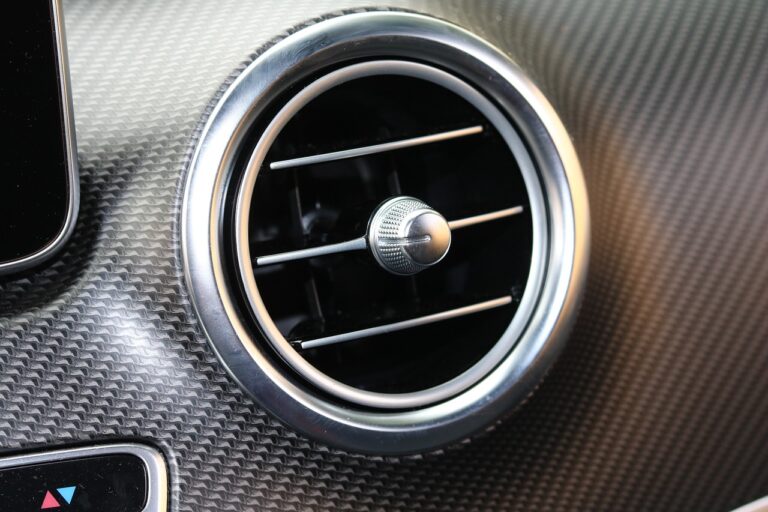Exploring the Impact of Automotive Air Conditioning on Fuel Consumption
betbhai 9, playexch, gold365.win login:Exploring the Impact of Automotive Air Conditioning on Fuel Consumption
Have you ever wondered how much fuel your car consumes when you turn on the air conditioning on a hot summer day? Many drivers are concerned about the impact of air conditioning on fuel consumption. In this article, we will explore how automotive air conditioning affects fuel efficiency, debunk some common myths, and provide tips on how to minimize the impact on your wallet.
The Cost of Comfort
Air conditioning has become a standard feature in most modern vehicles, providing much-needed relief from the heat during those scorching summer months. However, this comfort comes at a cost both in terms of fuel consumption and environmental impact. When you turn on the air conditioning in your car, the engine has to work harder to power the compressor, which in turn draws power from the engine, ultimately leading to higher fuel consumption.
How Much Fuel Does Air Conditioning Consume?
The exact impact of air conditioning on fuel consumption can vary depending on several factors, including the make and model of your vehicle, driving conditions, and the outside temperature. Studies have shown that using air conditioning can increase fuel consumption by as much as 20% in some cases, particularly at high speeds or in stop-and-go traffic.
Common Myths About Air Conditioning and Fuel Consumption
There are many misconceptions about how air conditioning affects fuel consumption. Let’s debunk some of the most common myths:
Myth #1: It’s more fuel-efficient to drive with the windows down than to use the air conditioning.
While it’s true that driving with the windows down can reduce the need for air conditioning, it can also increase aerodynamic drag, especially at high speeds. This can actually lead to higher fuel consumption compared to using the air conditioning.
Myth #2: Turning off the air conditioning will significantly improve fuel efficiency.
While turning off the air conditioning can help conserve fuel, especially during city driving or on cooler days, the impact on fuel consumption may not be as dramatic as some people believe. The key is to strike a balance between comfort and fuel efficiency.
Myth #3: Recharging the air conditioning system can improve fuel efficiency.
While a properly maintained air conditioning system can help your car run more efficiently, simply recharging the system will not have a significant impact on fuel consumption. Regular maintenance, such as cleaning the filters and checking for leaks, is more important for optimal performance.
Tips for Minimizing the Impact on Fuel Consumption
While it’s unrealistic to expect drivers to forgo air conditioning altogether, there are some steps you can take to minimize the impact on fuel consumption:
1. Use the air conditioning judiciously: Instead of running the air conditioning at full blast, try using the fan on a lower setting or cracking the windows for some fresh air.
2. Park in the shade: On hot days, park your car in the shade or use a sunshade to keep the interior cooler. This can reduce the need for the air conditioning to work as hard.
3. Maintain your air conditioning system: Regular maintenance, such as checking the refrigerant levels and cleaning the filters, can help improve the efficiency of your air conditioning system.
4. Tune up your car: Keeping your car well-maintained, including checking the tire pressure, changing the oil regularly, and replacing air filters, can help improve fuel efficiency overall.
5. Plan your routes: Avoid driving during the hottest parts of the day and plan your routes to minimize time stuck in traffic, which can increase fuel consumption.
FAQs
Q: Does using the air conditioning affect my car’s emissions?
A: Yes, using the air conditioning can increase your car’s emissions, as the engine has to work harder to power the compressor. However, the impact on emissions is generally small compared to other factors such as driving habits and vehicle maintenance.
Q: Is it more fuel-efficient to use the air conditioning in Eco mode?
A: Some vehicles have an Eco mode setting that is designed to optimize fuel efficiency by adjusting the air conditioning system among other things. Using Eco mode can help reduce fuel consumption, especially during city driving or in moderate temperatures.
Q: Are electric vehicles more fuel-efficient when using the air conditioning?
A: Electric vehicles tend to be more energy-efficient overall compared to traditional gasoline-powered vehicles. However, using the air conditioning in an electric vehicle can still impact range and energy consumption, so it’s important to use it judiciously.
Conclusion
In conclusion, automotive air conditioning does have an impact on fuel consumption, but there are ways to minimize this impact without sacrificing comfort. By following the tips mentioned in this article and being mindful of when and how you use the air conditioning in your car, you can help reduce your fuel costs and environmental footprint. Remember, a little bit of planning and maintenance can go a long way in maximizing fuel efficiency.







